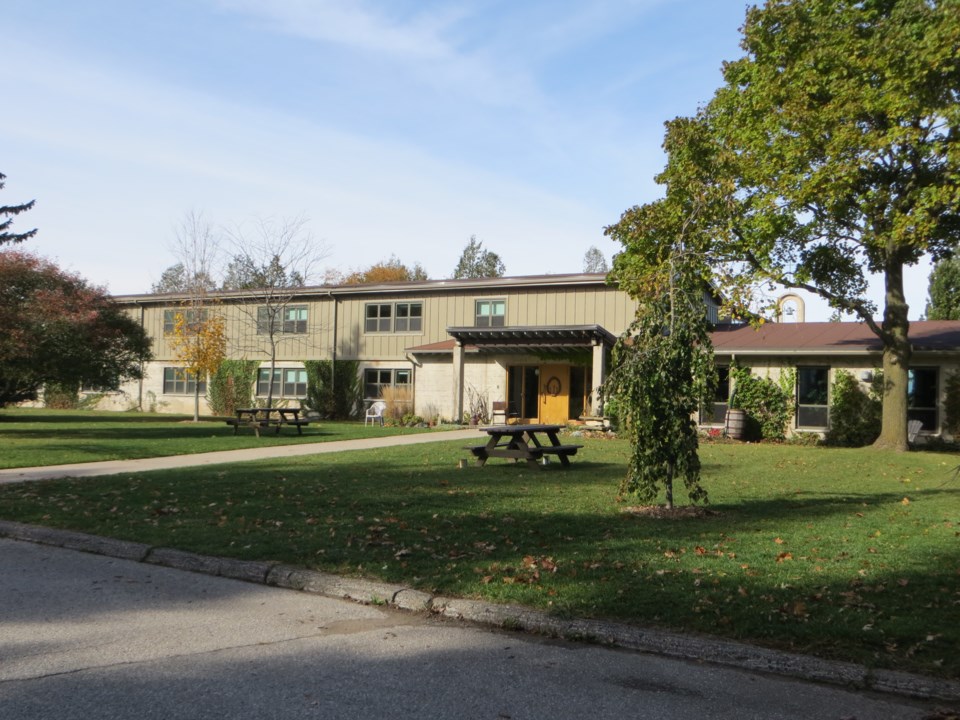Update: in an earlier version of this story, Melissa Kwiatkowski said she was aware of at least one overdose death at Loyola House. She has since contacted GuelphToday to say she was mistaken on that point and the quote has been removed.
An application to bring a second overdose prevention site to Guelph has been approved at Loyola House, a congregate setting currently being used to house people experiencing homelessness during the pandemic.
The Guelph Community Health Centre, which operates the Consumption and Treatment Site out of its downtown Guelph location, recently received an exemption from Health Canada to operate a similar Urgent Public Health Needs Site (UPHNS) at Loyola House.
The site will be called the Loyola House Supportive Temporary Accommodation Pilot Project (LHSTAP) and is being operated by the Drop in Centre.
“The overdose prevention site that will be at Loyola House is only for the people who are residing there, so people from the surrounding neighbourhoods wouldn’t be coming to the site,” said Melissa Kwiatkowski, primary health director at the Guelph Community Health Centre.
With the exemption in place, Kwiatkowski said the LHSTAP site is planned for an April opening.
“There are a lot of components to it, given that the exemption comes from the federal government, but funding comes from the provincial government. So there are a few steps to go through,” she said.
Last year a record number of people in Guelph died as a result of an opioid overdose, but Kwiatkowski noted none of those deaths occurred at the Consumption and Treatment Centre, where people who are using drugs do so under supervision.
The downtown site saw roughly 450-550 visitors per month in 2020, down from an average of around 850-950 a month in 2019, she said.
Kwiatkowski said opioid overdose deaths are continuing in 2021, as is evidence of an unsafe drug supply.
“We did see a couple of weeks this year when we saw a number of deaths in a short period of time and there has been health alerts issued this year, as well,” she said.
The 24 opioid deaths recorded in Guelph in 2020 is a 242 per cent increase over the seven recorded in 2019.
“Our community had seen, previous to COVID, total deaths in a year in the single digits every year and to all of a sudden have in one year in the 20s is just completely horrifying as a community that this is still happening,” said Kwiatkowski.
Adrienne Crowder, manager of Wellington Guelph Drug Strategy, agrees.
“That was over three time more than in 2019, so it was really hard to say the least and for the families that were involved it was awful,” said Crowder of the increase in the number of opioid overdose deaths. “That kind of number just leaps off the page, and it’s a number — we are talking about peoples’ lives.”
A safe supply pilot project that would see drugs prescribed to people living with addiction has begun in Guelph, said Kwiatkowski, but at this time she did not have any information to share about it.
Recently, Wellington Guelph Drug Strategy penned a letter to local representatives at all levels of government.
In the letter, it asked for the decriminalization of drugs for personal use, the need for a safe supply, the need for more harm-reduction services, as well as for more timely and accurate data for healthcare decision makers.
“We are trying to share information so they can be active members of the legislature to change the policy and be in a position to raise the conversation about the things that can be done that will keep people safer,” said Crowder.
